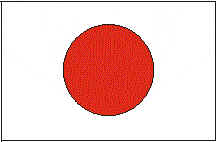 Japan
Japan

 Japan
Japan

Japan is island country in the North Pacific Ocean. It lies off the northeast coast of mainland Asia and faces Russia, Korea, and China. Four large islands and thousands of smaller ones make up Japan. About 126 million people are crowded on these islands, making Japan one of the most densely populated countries in the world. The Japanese call their country Nippon or Nihon, which means source of the sun. Mountains and hills cover most of Japan, making it a country of great beauty. It is one of the world's economic giants. Its total economic output is exceeded only by that of the United States.
Local government
The voters in each of Japan's 47 prefectures elect a governor and an assembly. The prefectures are further divided into cities, towns, and villages. The people elect in each of these units elect a mayor and a local assembly.
Politics
Japan has several political parties. The most successful is the Liberal-Democratic Party (LDP), a conservative party which has held more seats than any other party since 1955.
Population
About 126 million people live in Japan, making it one of the world's largest nations in population. During the period from 1870 to 1970, Japan's population more than tripled. It increased from about 30 million to more than 100 million. Since 1970, however, a low birth rate has slowed the nation's population growth, which now averages less than 1/2 of 1% a year.
Family life
This has always been important in Japan. Before 1945, many Japanese lived in large family units that included grandparents, parents, children, and sometimes uncles and their families. Japanese families were bound together by a strict set of customs. Today, most Japanese live in smaller family units that consist of only parents and children.
Food and Drink
The main food for Japanese people is rice. It is often simply boiled and eaten with pickled vegetables, such as pickled cabbage, cucumbers, eggplant, or radishes. Fish provides the chief source of protein in the Japanese diet.
Recreation
The Japanese people enjoy a wide variety of sports, hobbies, and other leisure-time activities. The favorite spectator sports are baseball and a Japanese form of wrestling called sumo.
Religion
Japan's oldest religion is Shinto, which means the way of the gods. Another is Buddhism. They both have millions of followers in Japan. Many Buddhists visit the Great Buddha, a huge bronze statue of the religion's founder in Kamakura.
Facts in brief:
Capital: Tokyo
Official language: Japanese
Population: estimated 1996-126,320,000; estimated 2001- 128,412,000
Chief products: agriculture- cabbage, hogs, milk, poultry, eggs; fishing- clams, squid oysters, tuna; manufacturing- auto, calculators, cement chemicals, computers.
National anthem: "Kimigayo" ("The Reign of Our Emperor")
Money: yen
My Experience
In 1987, I moved to Misawa, Japan with my family. I attended the 5th-7th grades there. I visited many places while there including a great outdoor getaway called Lake Towada. We visited Lake Towada several times a year because it was a great place to picnic, enjoy waterfalls, and take beautiful pictures along the trails. The land there is beautiful, but it is often very cold. The only thing I did not enjoy was the earthquakes!